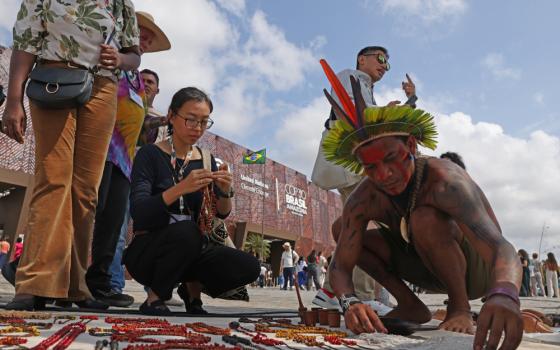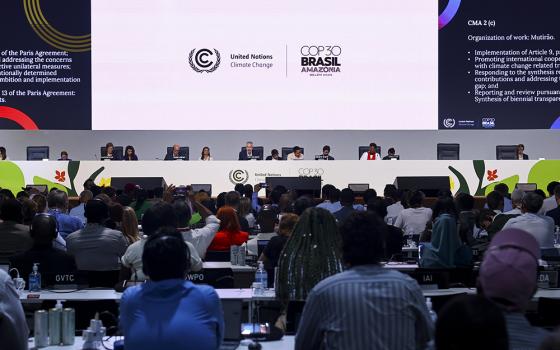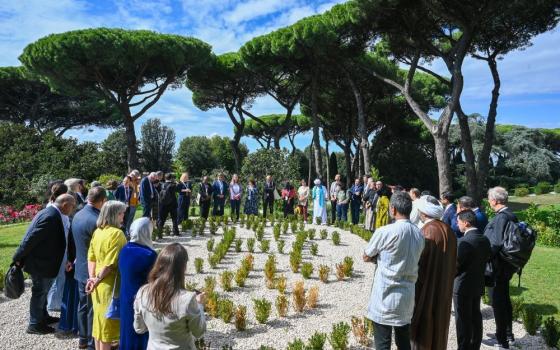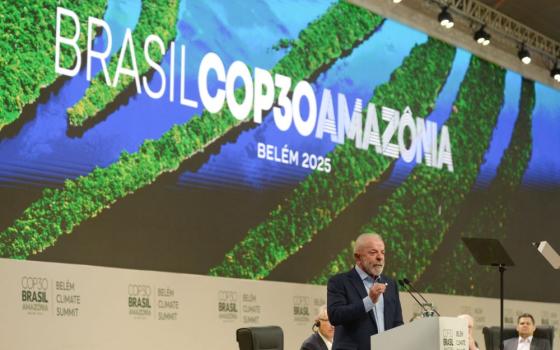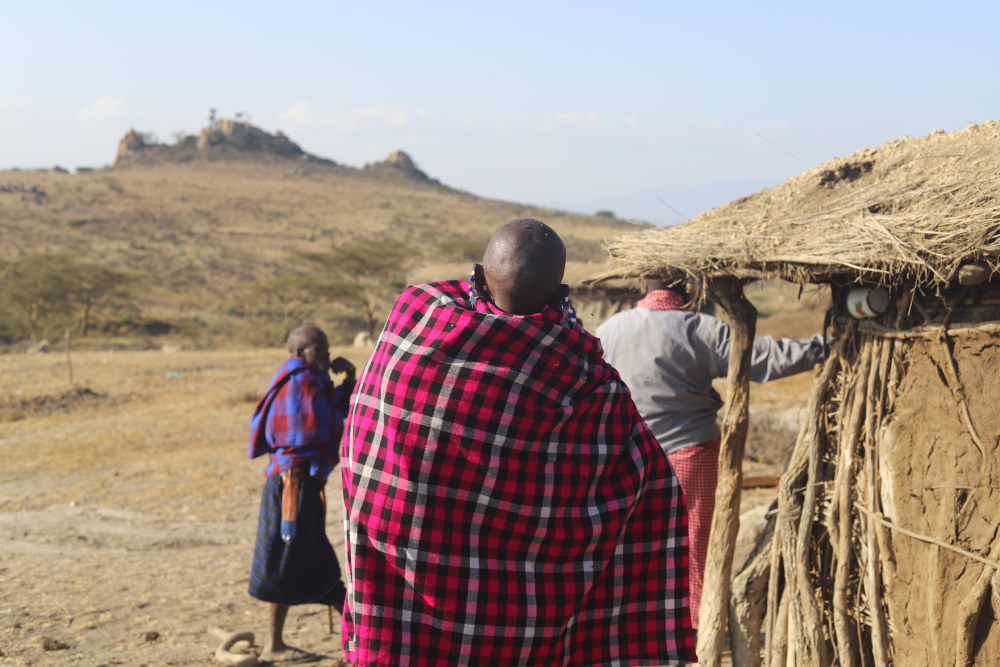
A Maasai woman carries her baby outside her hut in the Ngorongoro Conservation Area. Evictions have hit women and children especially hard, disrupting education, health care and family livelihoods. (GSR photo/Doreen Ajiambo)
At dawn in northern Tanzania, sunlight spills across Ngorongoro's highlands, where zebras graze on plains once filled with Maasai cattle. The circular bomas — traditional Maasai homesteads — are gone, replaced by scorched earth and silence.
"This land held our lives," said 65-year-old Nkaitole Ole Lengai, pointing to the remnants of his family's hut. "Now they say it belongs to tourism. To carbon. But not to us."
For many here, the loss is not only physical but spiritual. The Maasai see the land as a sacred gift entrusted by God, woven into their prayers, rituals and daily life. Catholic sisters and priests who minister among them say eviction strikes at the heart of both faith and identity.
"When people lose their land, they also lose their dignity and their place in God's creation," said a Good Shepherd sister and pastoral worker in northern Tanzania, who asked not to be named for safety reasons. "Land is not just soil — it is where life and faith come together."
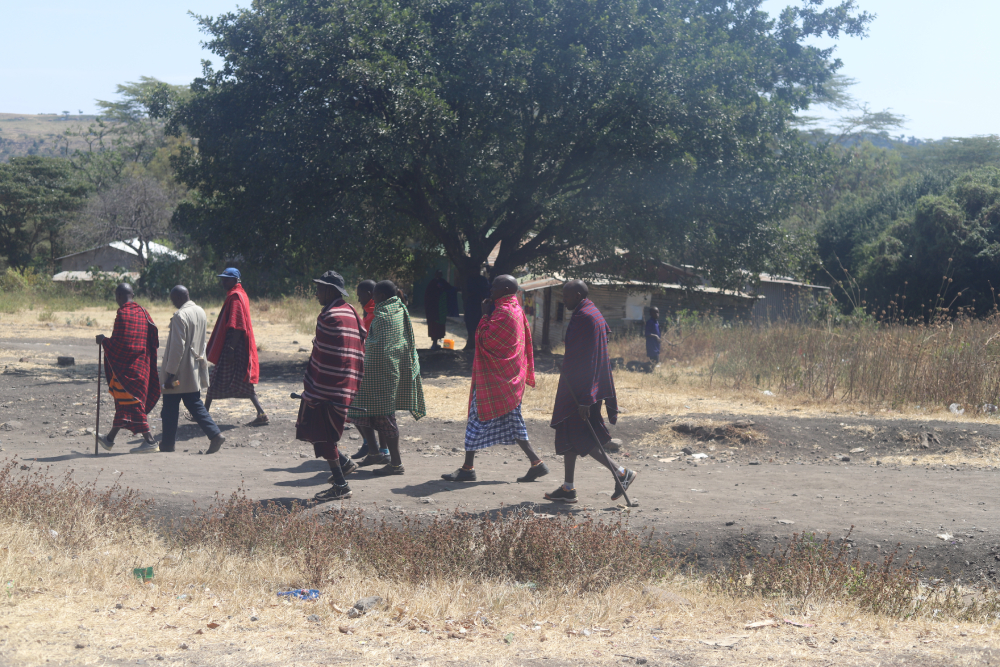
Maasai elders walk together in the Ngorongoro Conservation Area on July 8, 2023. Community leaders say they fear gathering in groups because of government threats amid an ongoing eviction drive tied to tourism and conservation. (GSR photo/Doreen Ajiambo)
Her words echo Pope Francis' encyclical Laudato Si', which insists that the cry of the earth and the cry of the poor are one. "We are not defending nature as an object," the sister said, "we are defending people as part of God's creation."
Lengai is among hundreds of thousands of Maasai herders who have been evicted or pressured to leave their ancestral lands in recent years under government-backed conservation and carbon offset initiatives. In areas like Ngorongoro and Loliondo, Indigenous families are being pushed aside for wildlife corridors, game reserves and large-scale soil carbon projects — many linked to global climate finance schemes.
As world leaders prepare to gather in Belém, Brazil, for COP30 this November, the Maasai's story is gaining global resonance. With carbon markets and so-called nature-based solutions set to take center stage at the summit, advocates warn that what is unfolding in Tanzania is a harbinger of what could happen elsewhere: climate action that displaces communities in the name of environmental progress.
"This is not only a problem for the Maasai — it's a warning for the whole world," said Lemayian Ole Sanka, a climate justice advocate from Arusha. "If carbon markets keep growing without proper rules, other communities could also lose their land."
Carbon markets and contested lands
Tanzania is one of several African nations embracing carbon markets to finance its climate goals and conservation agenda. Projects in Longido, Simanjiro and Monduli districts aim to generate credits through soil carbon sequestration — locking carbon in the ground by restricting grazing and farming. The country also stands to earn revenue through eco-tourism and reforestation tied to credit sales.
Officials defend the programs as essential to both development and environmental protection.
"We must protect our natural heritage for future generations," said a senior conservation officer with the Tanzania Wildlife Management Authority in Arusha, who requested anonymity. "The carbon economy is not a threat — it is an opportunity."
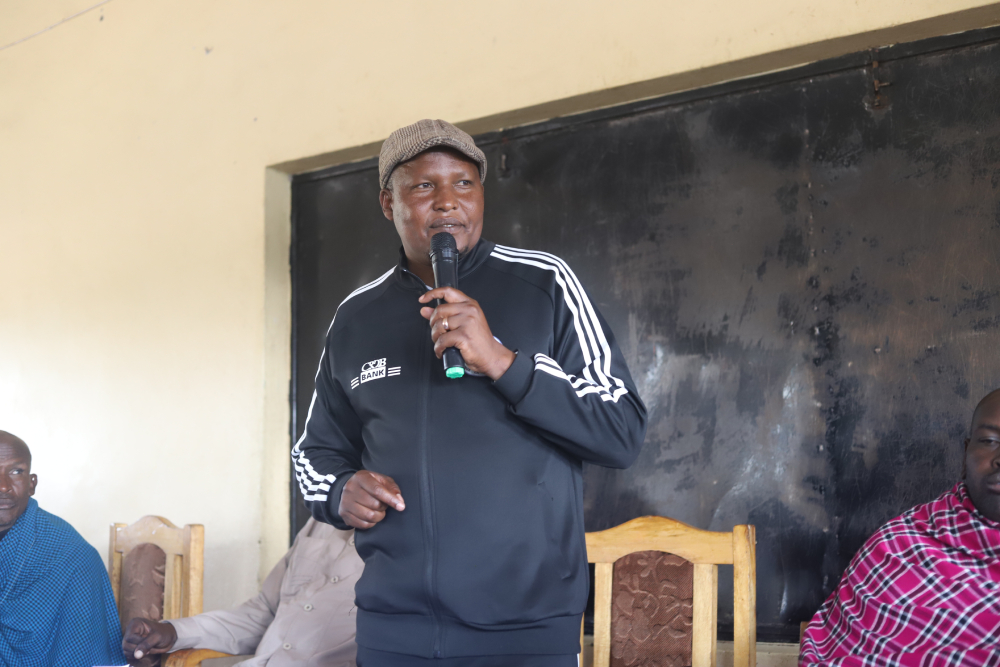
Emmanuel Lekishon Shangai, the legislator representing Ngorongoro, addresses Maasai residents raising concerns about government plans to remove them from ancestral land for tourism and wildlife protection. (GSR photo/Doreen Ajiambo)
But for the Maasai, who depend on seasonal grazing and open movement, conservation has come at a heavy cost. In 2022, the government demarcated over 1,500 square kilometers (580 square miles) of Loliondo land for a new game reserve. Protests erupted. Security forces responded with tear gas, rubber bullets — and, according to witnesses, live ammunition.
Human rights groups documented the displacement of up to 70,000 people in Loliondo alone, while many more across Ngorongoro and beyond report being coerced into leaving their land. The scale underscores how deeply carbon finance and land-use deals are reshaping Indigenous lives, often with little clarity or consent.
"We were told we could not graze, not even fetch water," lamented 55-year-old Olenana Ole Lekakeny, a catechist from Loliondo. "People were beaten. Our homes were torched."
In Ngorongoro, the government is pursuing a more gradual relocation strategy. But families say they are being pushed out through attrition: schools shuttered, clinics closed, government support withdrawn.
"They are trying to make life impossible here," said Naeku Kasaine, a mother of six who now lives in a makeshift camp outside Monduli. "They want us to say we left by choice."
A 2025 report by Catholic organizations Misereor and CIDSE warned that many land-use agreements signed with Maasai communities last up to 40 years and lack transparency. Few are written in local languages. The report cautions that such deals may "create long-term vulnerability" by severing Indigenous people from vital resources in the name of emissions reductions.
The developments in Tanzania come as COP30 prepares to finalize rules for Article 6 of the Paris Agreement, which governs how countries and private companies can trade emissions reductions. These markets are expected to become a pillar of climate finance, especially for nations in the Global South.
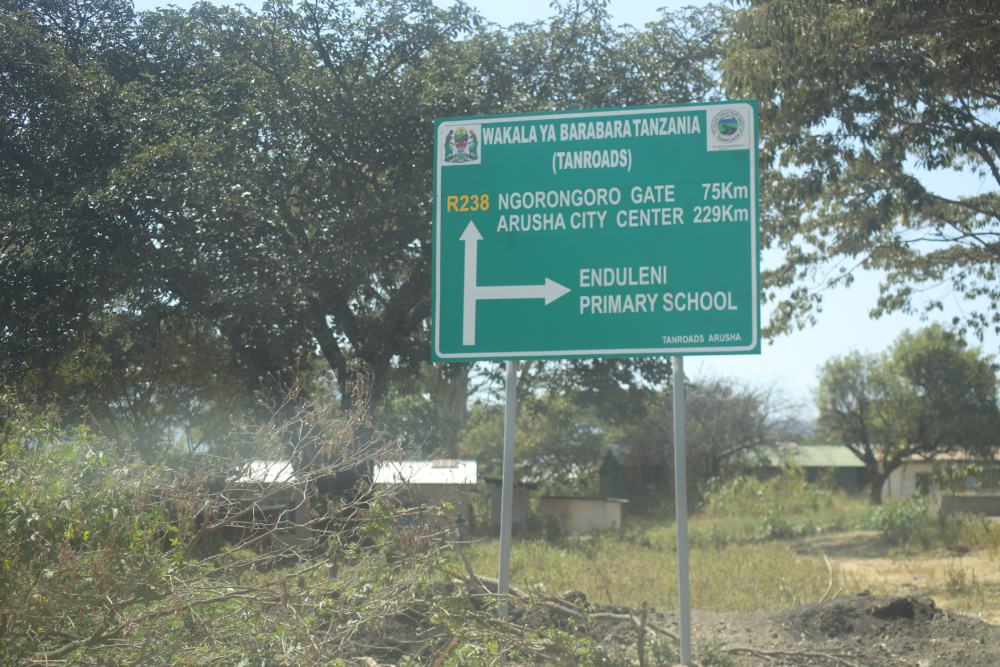
A sign stands near Endulen Primary School in Tanzania's Ngorongoro Conservation Area. The government has demolished schools, homes and health facilities while pressing Maasai families to leave their ancestral land in the name of wildlife protection and tourism. (GSR photo/Doreen Ajiambo)
But civil society groups are pushing back, demanding strong protections for Indigenous rights, particularly the right to free, prior and informed consent (FPIC). Without these protections, critics warn, climate finance could become a vehicle for exploitation rather than empowerment.
"What we're seeing in Tanzania is part of a much broader pattern," said Sanka. "From the Congo Basin to Brazil's Cerrado, communities are losing land under the banner of climate mitigation. COP30 is where we decide whether that continues."
The Vatican's Dicastery for Promoting Integral Human Development is contributing to preparations for COP30 by emphasizing that climate policies must be rooted in human dignity and solidarity. In recent years, the dicastery has highlighted the plight of people displaced by climate change and urged just, people-centered solutions. Ahead of COP30, bishops from Asia, Africa and Latin America have also called for ecological conversion and climate justice, warning against "false solutions" that could harm vulnerable communities.
Church advocacy amid crackdowns
Catholic leaders in Tanzania have been vocal in defending the Maasai, even as some clergy face backlash from the government and within the church hierarchy.
At Endulen Hospital in Ngorongoro, sisters have continued to treat patients even after their emergency services license was revoked in 2023 — a move they believe was meant to pressure Maasai out of the area.
"We are not here as tourists or activists," said one sister. "We are here as family. And family doesn't walk away."
Some priests have endured surveillance, threats and even short periods of detention after speaking out against the evictions.
Advertisement
One priest who was briefly detained told GSR: "They warned me to stay away from politics. But Jesus spoke of justice — and we will continue to do the same."
Yet tensions have also surfaced within the church. In 2022, Arusha Archbishop Isaac Massawe invited a senior military official linked to the evictions to a Vatican climate symposium. Many Maasai Catholics saw the gesture as legitimizing state violence.
"We felt abandoned," said a lay catechist, who asked not to be named. "But the church on the ground — our sisters, our priests — they are still with us."
Beyond policy debates, the burden falls on ordinary Maasai. Families now live in tents on unfamiliar land outside Monduli or in government relocation sites in Handeni District, battling hunger and illness. Cultural practices — from livestock inheritance to community decision-making — have been disrupted. Many children no longer attend school.
"Our young people ask: Who are we now, if we have no land?" said catechist Lekakeny.
Kasaine worries that the next generation will grow up with shame, not pride.
"We teach our children that we belong to the land," she said. "But now, we are told the land belongs to carbon."
As the world prepares for COP30, Maasai leaders and their allies insist their plight is not an isolated case, but a test of whether climate policy will defend the vulnerable or sacrifice them.
At sunset, Lengai's voice carried the weight of generations.
"Tell those in Brazil," he said, "we are not asking for pity. We are asking for truth. If their climate plans destroy us, they are not saving the world. They are building it on our graves."




